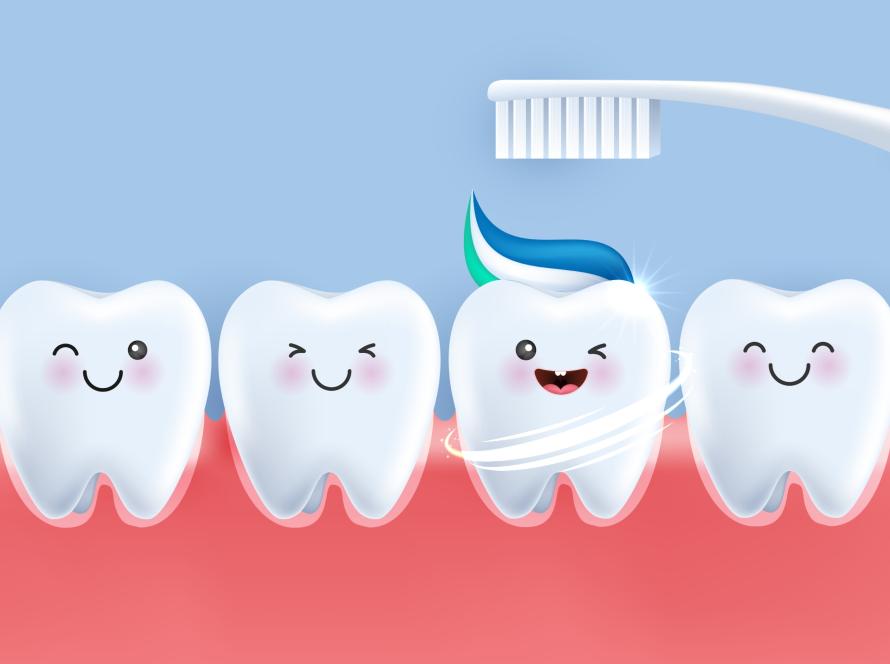Oral health is recognized as a vital part of overall well-being, but for children with heart conditions, it carries even greater significance. Children with congenital heart defects (CHD) or other heart-related medical concerns face an increased risk of infections, making preventive dental care a critical component of their healthcare routine. (Source: Healthychildren.org, Dental Care for Children with Heart Conditions, Last Updated June 11, 2018, Source, Congenital Heart Public Health Consortium (CHPHC), https://www.healthychildren.org/English/health-issues/conditions/heart/Pages/Dental-Care-for-Children-with-Heart-Conditions.aspx?_gl=1*1hyuuzb*_ga*MTMzNzEyODE5Mi4xNzMyMzg1MzM1*_ga_FD9D3XZVQQ*MTc0MDUzOTU2Mi4yLjAuMTc0MDUzOTU2My4wLjAuMA.. ).
Toronto Kids Dental provides expert insights into the unique challenges and necessary precautions parents should take to safeguard their children’s oral and heart health.
What’s the Connection Between Your Teeth and Your Heart?
The health of the mouth and the heart are closely linked. Bacteria can enter the bloodstream through gum infections, cavities, or during routine dental procedures, potentially leading to serious complications for children with heart conditions.
Toronto Kids Dental highlights, “Many parents may not realize how oral bacteria can affect a child’s heart. The mouth is a gateway to the body, and when bacteria enter the bloodstream, they can travel to the heart, increasing the risk of conditions like infective endocarditis. Regular oral care and preventive measures help reduce harmful bacterial buildup, protecting not just the teeth but the heart as well.”
They add, “Maintaining strong oral hygiene is not just about avoiding cavities—it’s about ensuring that bacteria do not have the opportunity to cause harm beyond the mouth. This is why proper brushing, flossing, and professional cleanings are essential for children with heart conditions.”
What is Endocarditis?
Endocarditis is a severe infection that impacts the heart’s inner lining, typically caused by bacteria in the bloodstream. Children with specific congenital heart defects face a higher risk, and poor oral hygiene or invasive dental procedures can increase the likelihood of developing this condition.
Toronto Kids Dental explains, “Endocarditis occurs when bacteria attach to damaged areas of the heart, leading to inflammation and serious complications. The risk is particularly high for children with artificial heart valves, congenital heart disease, or previous heart infections. Because bacteria from untreated cavities or gum disease can trigger this condition, maintaining excellent oral hygiene is not just recommended—it’s essential.”
They stress, “To reduce the risk of endocarditis, preventive dental care should be prioritized. Parents should work closely with both their child’s cardiologist and pediatric dentist to develop a safe and effective dental plan, ensuring that oral bacteria do not become a threat to heart health.”
How Can I Help Protect My Child’s Health?
First Step: Finding a Pediatric Dentist
Selecting a pediatric dental professional is crucial for children who have heart conditions. Pediatric dentists with experience in medically complex cases can provide specialized care that considers both oral and cardiac health needs.
Toronto Kids Dental shares, “Finding a pediatric dentist who understands the complexities of treating children with heart conditions is the first and most important step. Not all dentists are familiar with the precautions needed for these patients. Parents should look for a dentist who collaborates with cardiologists, understands the risks associated with dental procedures, and follows the latest guidelines for treating children with congenital heart defects.”
They advise, “When searching for a pediatric dentist, parents should ask questions about their experience with high-risk patients, their familiarity with antibiotic prophylaxis, and their approach to preventive care. A well-informed dental team can make all the difference in ensuring a child’s safety.”
Speak with Your Child’s Dentist Before the Appointment
Before any dental procedure, it’s important for parents to discuss their child’s medical history with the dentist to determine if special precautions, such as antibiotic prophylaxis, are necessary.
Toronto Kids Dental notes, “Not all children with heart conditions require antibiotics before dental treatment, but for those who do, it can be a lifesaving precaution. Parents should provide their child’s full medical history, including any past heart surgeries, medications, and cardiologist recommendations, to ensure the safest treatment plan.”
They continue, “Clear communication between the child’s healthcare providers is key. A collaborative approach between the pediatric dentist and cardiologist helps ensure that any necessary precautions—such as pre-medication with antibiotics or modifications to treatment plans—are in place before the appointment.”
Preventing Tooth Decay Starts in the Home
Good oral health begins with daily habits, and for children with heart conditions, keeping teeth and gums healthy is even more critical in preventing infections.
Toronto Kids Dental emphasizes, “Prevention is always better than treatment, especially for children with heart conditions. Establishing a consistent kid-friendly oral hygiene routine at home is the best way to minimize the risk of cavities, gum disease, and bacterial infections.”
They offer the following recommendations:
- Brushing & Flossing: “Children should brush their teeth twice a day with dentist-recommended fluoride toothpaste and use a soft-bristled toothbrush to avoid gum irritation. Parents should help younger children brush properly and encourage flossing to remove plaque between teeth.”
- Limiting Sugar: “Sugary snacks and drinks feed harmful bacteria that cause cavities. Encouraging a balanced diet with calcium-rich foods helps strengthen enamel and support overall health.”
- Hydration & Saliva Production: “Children who are on heart medications may experience dry mouth, which increases their risk of tooth decay. Drinking lots of water and using sugar-free gum or xylitol products can help keep saliva flowing, which protects against harmful bacteria.”
- Regular Dental Checkups: “Routine visits to a children’s dentist allow for early detection of oral issues and professional cleanings to remove plaque buildup. For children with heart conditions, skipping checkups can pose unnecessary risks.”
For children with heart conditions, dental care is more than just maintaining a bright smile—it plays a vital role in their overall health. Understanding the connection between oral and cardiac health, preventing tooth decay at home, and working with knowledgeable pediatric dentists can help parents protect their children from serious complications.
Toronto Kids Dental underscores, “Parents of children with heart conditions must take a proactive approach to dental care. By staying informed, selecting experienced dental professionals, and maintaining strict oral hygiene habits, they can significantly reduce health risks and improve their child’s quality of life.”
By prioritizing preventive care and fostering a collaborative relationship between pediatric dentists and cardiologists, families can ensure their child receives the safest, most effective dental treatment—paving the way for a lifetime of good health.


